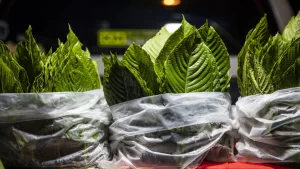Kratom, an herbal supplement derived from the leaves of Mitragyna speciosa, a tree native to Southeast Asia, has experienced a complex legal history in Colorado. In 2016, the U.S. Drug Enforcement Administration announced plans to classify kratom’s active compounds as Schedule I substances, citing concerns over safety and potential for abuse. This move prompted significant public outcry, including petitions and letters from lawmakers, leading the DEA to withdraw its intent later that year.

In response to federal deliberations, Denver’s Department of Environmental Health took action in November 2017 by banning the sale of kratom for human consumption within city limits. This decision followed a public health advisory from the U.S. Food and Drug Administration (FDA) warning about the potential risks associated with kratom use. Retailers in Denver were permitted to sell kratom products only if labeled “not for human consumption,” and establishments serving kratom on-site were required to display consumer advisories.
At the state level, Colorado enacted Senate Bill 22-120 in 2022, introducing regulations for kratom processors effective July 1, 2024. The law prohibits the sale of kratom products adulterated with substances like fentanyl, mandates clear labeling with manufacturer information and ingredient lists, and restricts sales to individuals under 21 years of age. Additionally, products must be stored in retail locations to prevent access by those under 21. Violations can result in civil infractions and fines, reflecting Colorado’s effort to balance consumer access with safety considerations.
Additionally, products must be stored in retail locations to prevent access by those under 21. Violations can result in civil infractions and fines, reflecting Colorado’s effort to balance consumer access with safety considerations.
Colorado General Assembly+5Colorado General Assembly+5Justia Law+5
